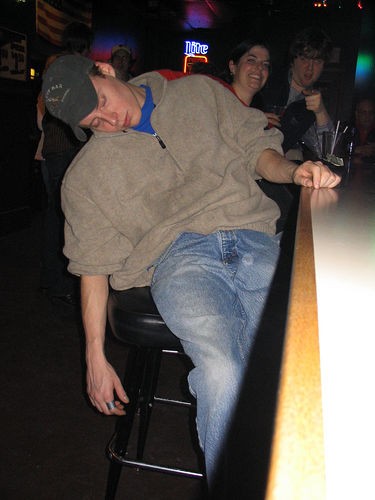The Antipsychotic Medication Aripiprazole May Help Alcoholics Stop Drinking
The medication increases the sedative effects of alcohol while reducing the pleasurable, or euphoric effects.
A drug more typically given to treat psychosis may help alcoholics break their addiction.
Dr. Henry R. Kranzler, from the University of Connecticut, knew that the atypical antipsychotic, Aripiprazole, worked on some of the same neural systems as are affected by alcohol, and he choose to investigate formally what impact the use of the medication in otherwise healthy individuals had on alcohol consumption.
18 healthy study participants, with an average age of 26 and a history of moderate drinking in the previous 90 days, were given alcohol in a laboratory. Some were also given only a placebo, some were also given a 2.5 mg dosage of Aripiprazole and some were also given a 10 mg dosage.
Each participant was given three alcoholic drinks, the exact quantities modified to equalize for the effects of age, weight and gender, and their reactions were noted, both physiologically, and subjectively.
Physiologically, Aripiprazole increased heart rate, and larger doses increased it more. Subjectively, participants reported that the medication made them feel more tired and less euphoric after consuming alcohol, and the greater the dosage, the larger the effect.
The medication was well tolerated by the subjects, with only some minor side effects reported.
Kranzler concludes that the medication could help alcoholics reduce their drinking. The medication takes away much of the pleasure of alcohol, increases the sedative effects of drink, making it less likely to drink to excess, and is generally a well tolerated drug.


